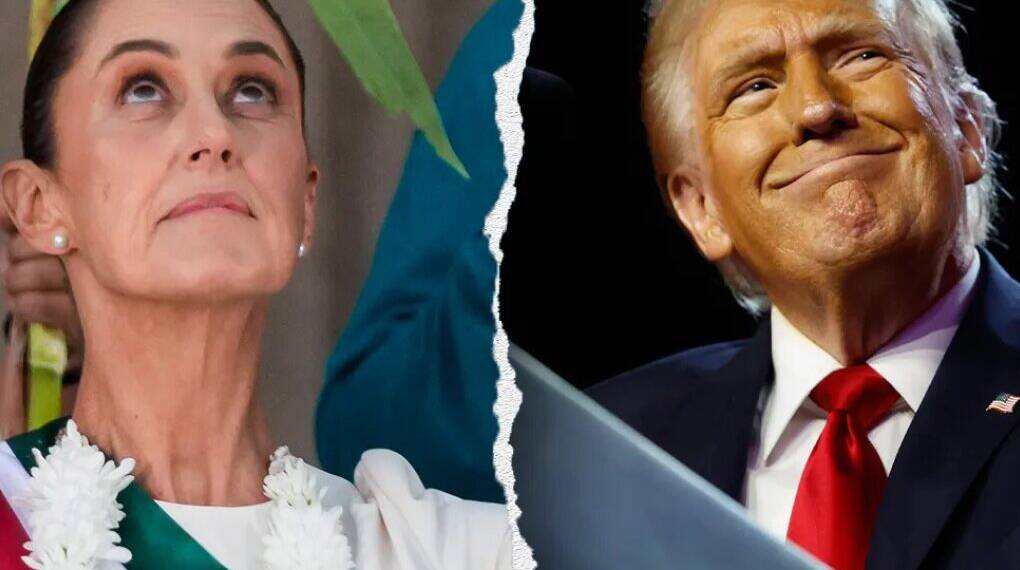In a move that could redefine U.S.-Mexico relations and alter the security landscape of North America, the Trump administration has begun detailed planning for a covert mission to send American troops and intelligence officers into Mexico to directly target drug cartels.
According to multiple current and former U.S. officials familiar with the matter, this operation—if approved—would mark a historic shift from intelligence cooperation to direct U.S. military action on Mexican soil.
A Radical Expansion of Anti-Cartel Strategy
The proposed mission represents the most aggressive anti-cartel campaign in modern U.S. history. Under President Donald Trump’s renewed push against narcotics trafficking, the plan calls for American special forces—primarily from the Joint Special Operations Command (JSOC)—to operate inside Mexico under Title 50 authority, placing the mission under U.S. intelligence oversight. CIA officers are also expected to play a key role, signaling a hybrid military-intelligence operation with covert characteristics.
According to officials, the early stages of training for this potential mission have already begun. However, no final deployment decision has been made, and discussions on the scope and rules of engagement are ongoing. The administration reportedly intends to keep the mission classified, mirroring the secrecy surrounding recent U.S. operations targeting alleged drug-smuggling boats in the Caribbean and Pacific.
Drone Warfare at the Border
A central component of the proposed campaign would be the use of armed drones to strike drug labs, cartel leaders, and smuggling routes deep inside Mexican territory. Some drones that would be employed require operators to be positioned within range on the ground, implying that U.S. troops would need to establish temporary operational footholds inside Mexico.
This would be a drastic departure from past practice. Previous U.S. administrations have deployed intelligence and law enforcement teams to Mexico to assist local forces—but never to conduct direct lethal strikes.
Trump has argued that traditional law enforcement approaches have failed to stem the narcotics flow into the U.S., where synthetic opioids like fentanyl continue to fuel a deadly crisis. His administration maintains that cartels, not just criminal enterprises but transnational threats, justify military intervention.
Legal Grounds and Strategic Context
The Trump administration’s justification for such operations lies in its February 2025 decision to classify six Mexican cartels, MS-13, and Venezuela’s Tren de Aragua as foreign terrorist organizations (FTOs). This legal designation gives U.S. military and intelligence agencies sweeping powers to conduct espionage and covert strikes under counterterrorism authorities—essentially treating cartels like terrorist cells.
Trump’s team has already applied similar tactics in Venezuela, where U.S. strikes on suspected drug-carrying vessels have been ongoing since early September. The Pentagon claims to have neutralized 64 individuals linked to smuggling networks in 15 maritime operations, though it has not provided verifiable evidence.
A Diplomatic Flashpoint
Mexico’s president, Claudia Sheinbaum, has publicly rejected any notion of foreign intervention, reaffirming her stance that “Mexico coordinates and collaborates, but does not subordinate itself.” While Sheinbaum has allowed the CIA to expand surveillance flights that began under the Biden administration, she remains firm that Mexican sovereignty is non-negotiable.
However, under her leadership, Mexico has made significant moves to demonstrate cooperation: deploying 10,000 troops to the U.S. border, ramping up fentanyl seizures, and extraditing dozens of cartel leaders. Despite these efforts, Trump has repeatedly portrayed Mexico as “run by cartels,” asserting that the U.S. must act unilaterally if necessary to protect American lives.
Officials familiar with the planning said that while Washington prefers to coordinate with Mexico, it has not ruled out conducting operations without explicit Mexican approval—a stance that risks diplomatic fallout and could reignite anti-American sentiment in Mexico.
Political and Global Implications
Trump’s Mexico strategy fits into his broader “hemispheric war on cartels,” which already includes military pressure in Venezuela and increased surveillance across Central America. Supporters argue that such operations are overdue, given the tens of thousands of American deaths annually from drug overdoses. Critics, however, warn that the approach blurs the line between counterterrorism and law enforcement, potentially drawing the U.S. into open-ended conflicts with non-state actors.
A covert military campaign in Mexico would also test regional stability. Latin American governments, wary of U.S. interventions in the past, could view the move as a dangerous precedent. Moreover, China and Russia—both expanding their influence in Latin America—may use the moment to criticize Washington’s militarization of the region.
A Defining Moment for U.S.-Mexico Relations
While the mission remains under discussion, its very consideration marks a pivotal moment in U.S. foreign and defense policy. Trump’s willingness to deploy troops under intelligence authority within a neighboring nation underscores his administration’s readiness to blur the boundaries between war and policing in pursuit of national security.
Whether this strategy will succeed in dismantling powerful drug cartels—or ignite new waves of instability—remains to be seen. But one thing is certain: a U.S. military footprint inside Mexico would be a watershed in the modern history of the Americas, reshaping the region’s security architecture and redefining Washington’s fight against the narcotics empire.








